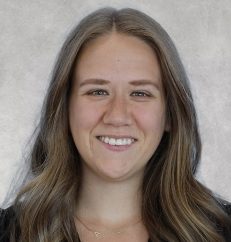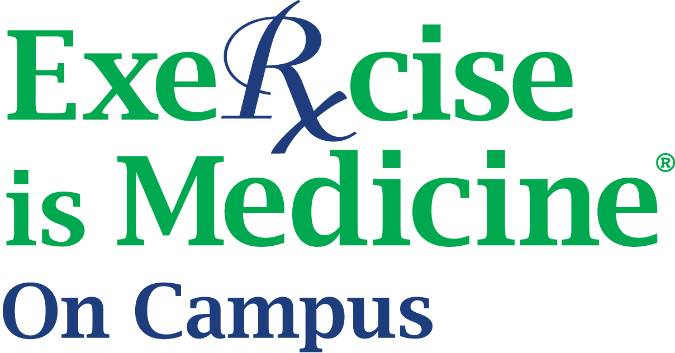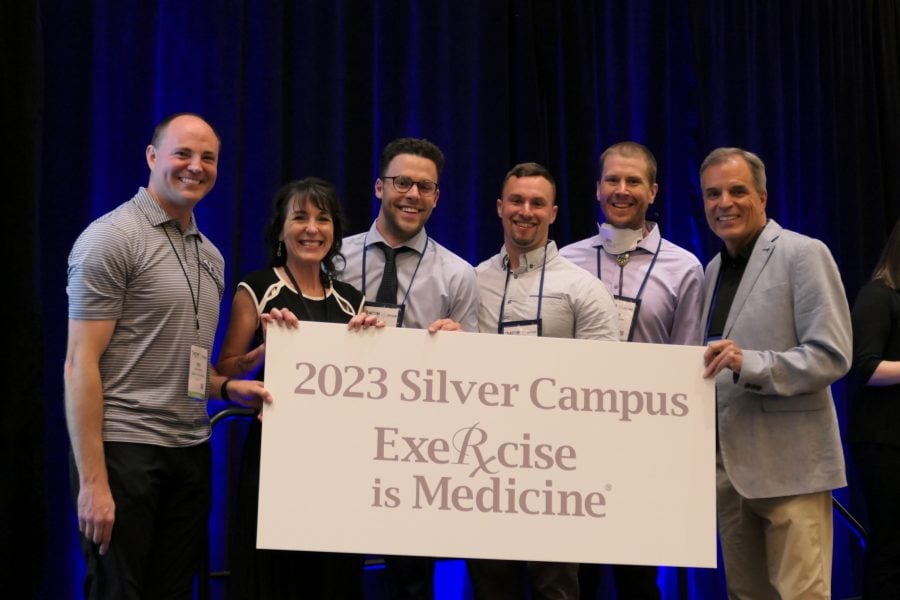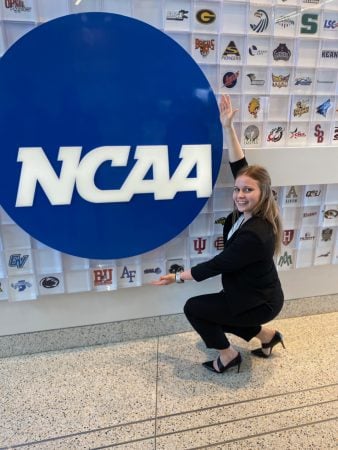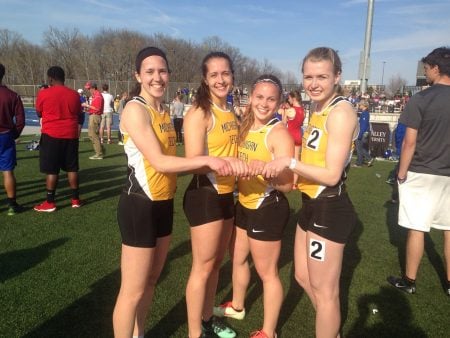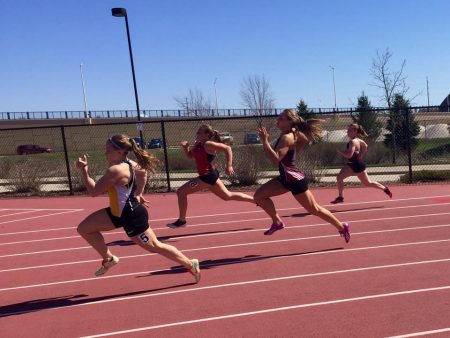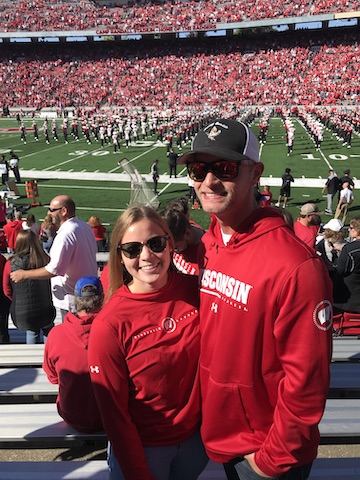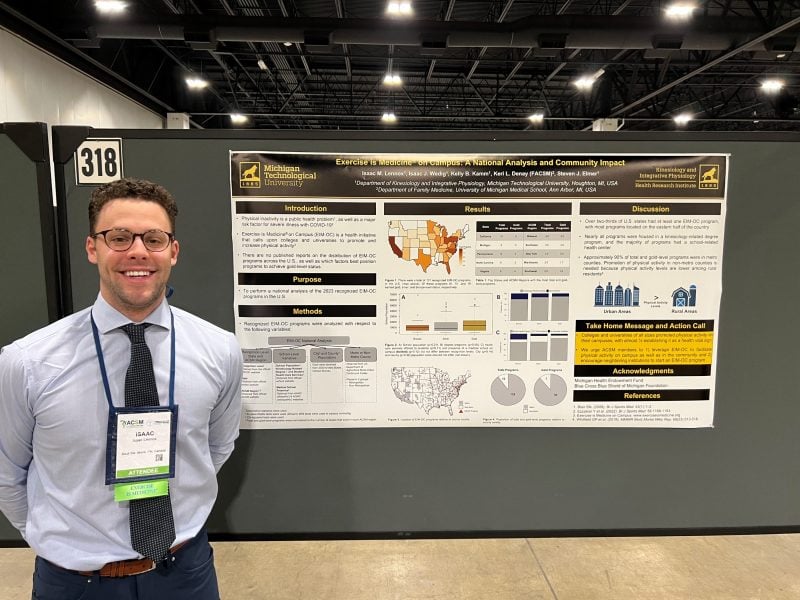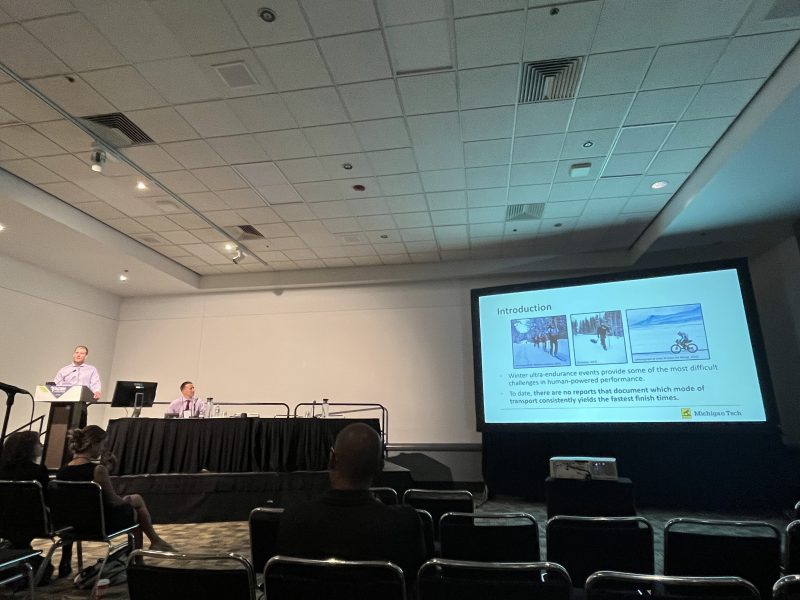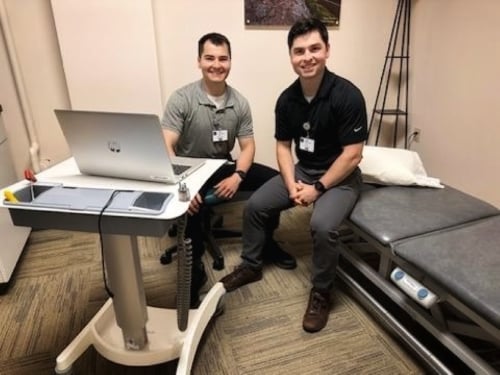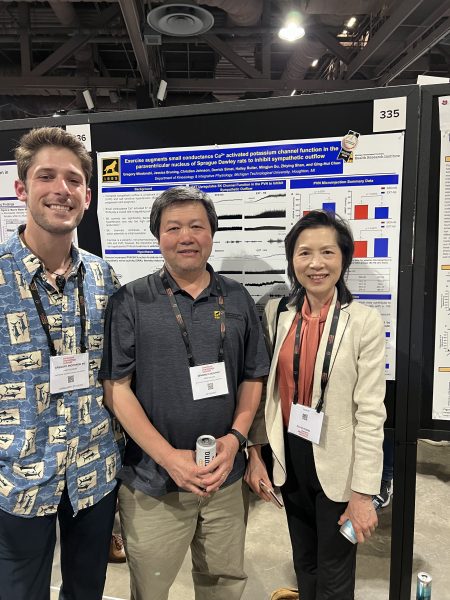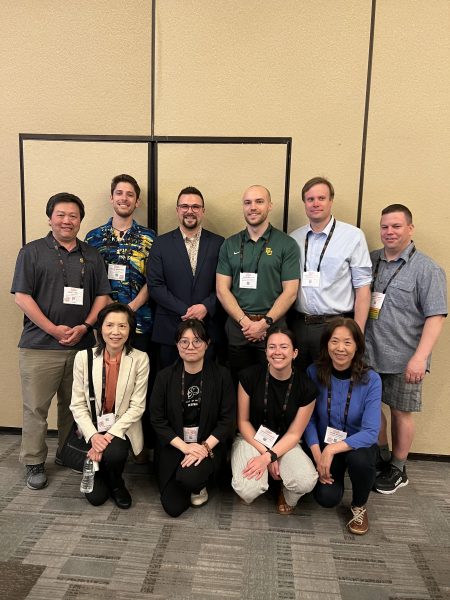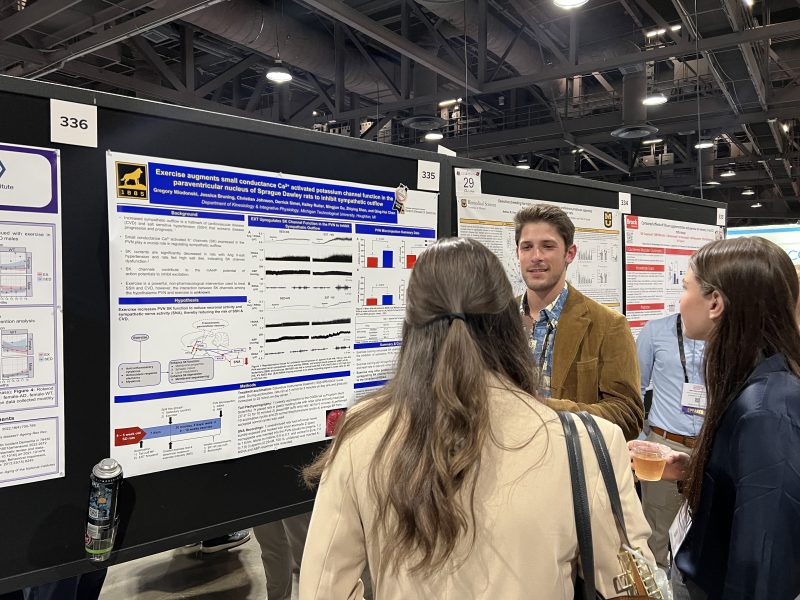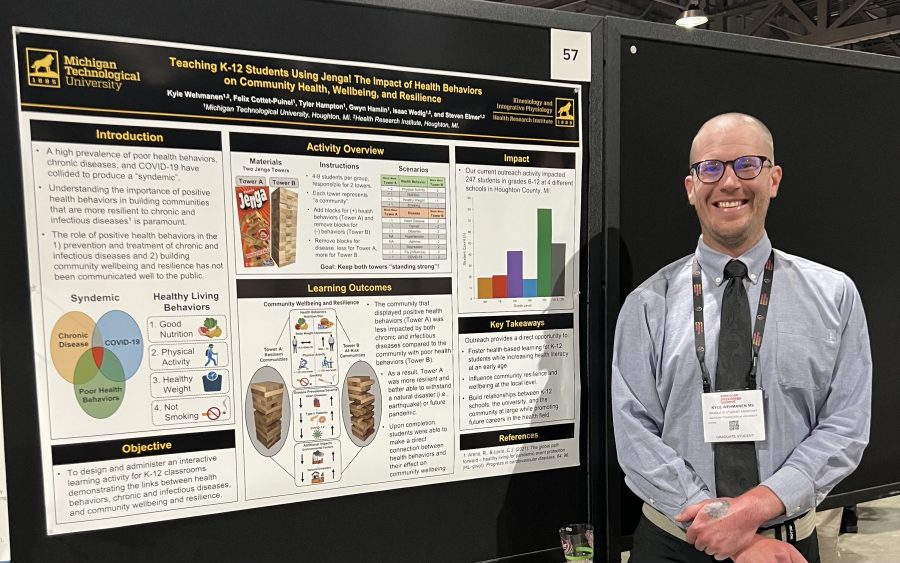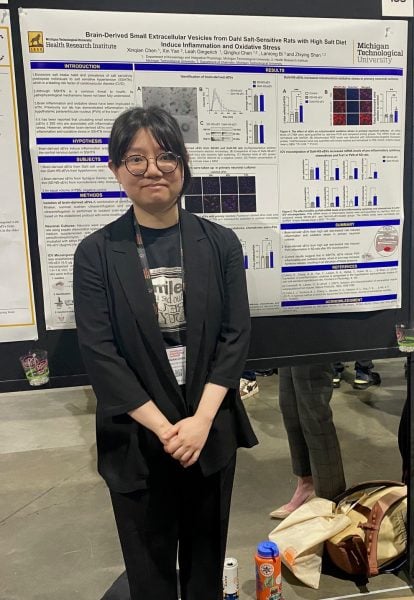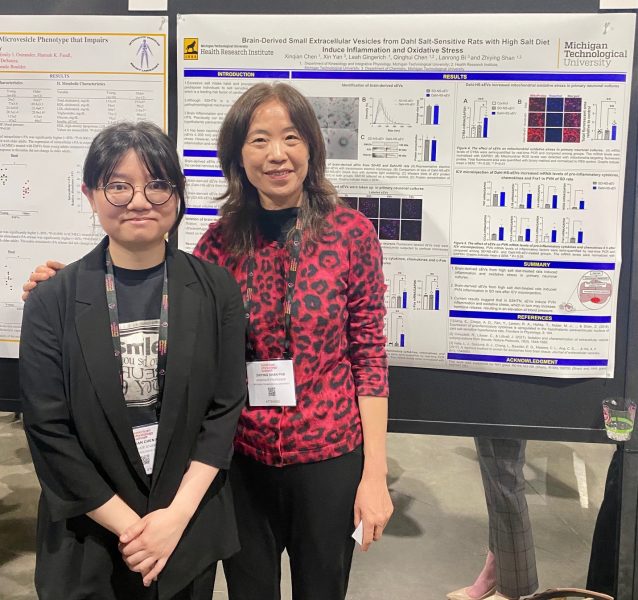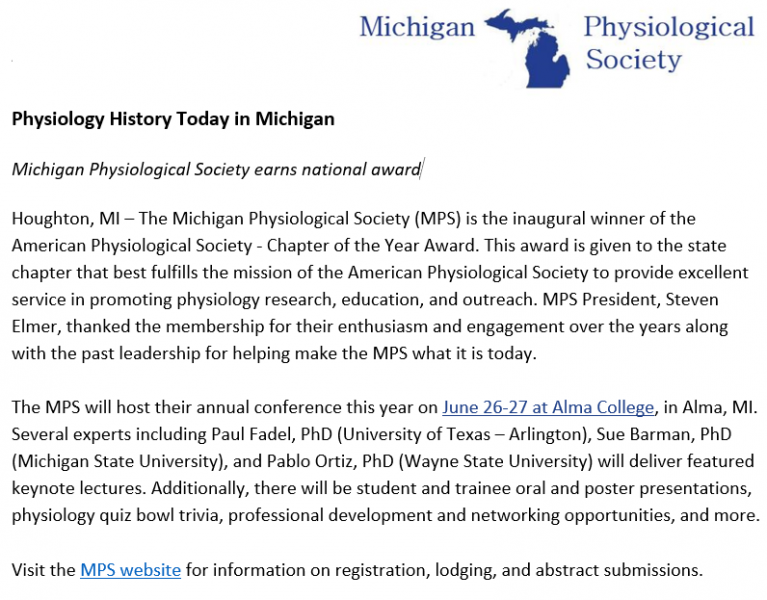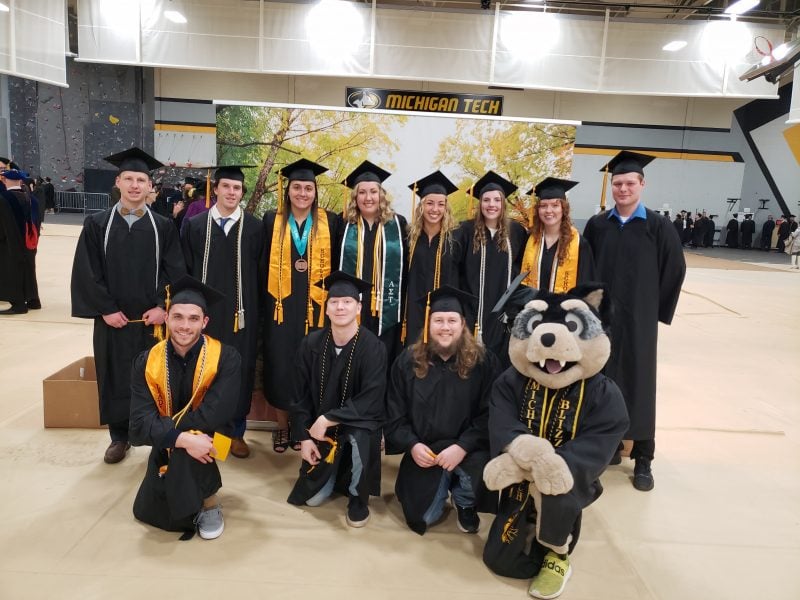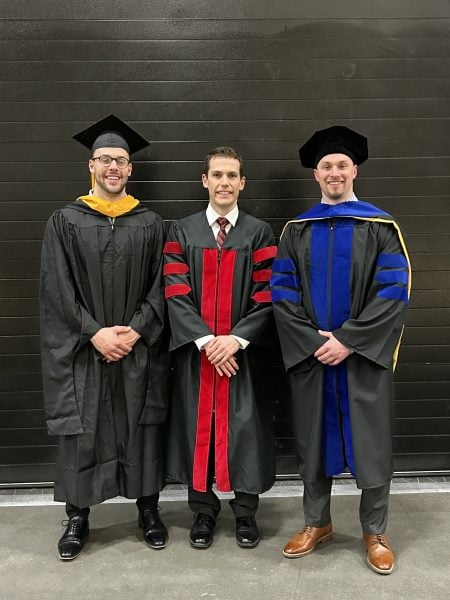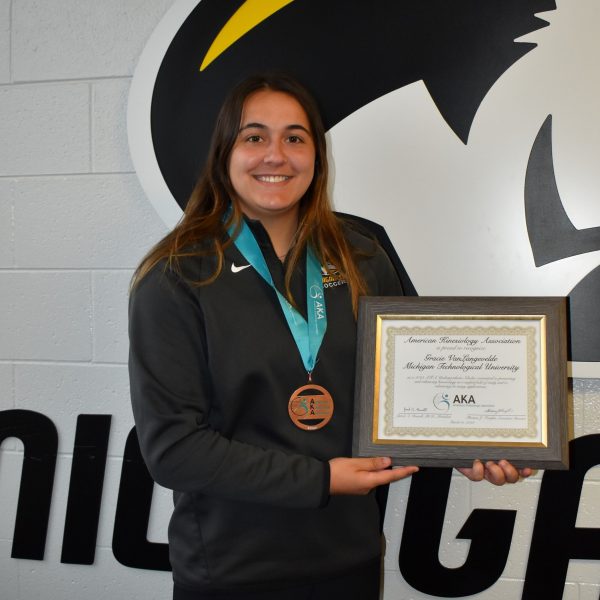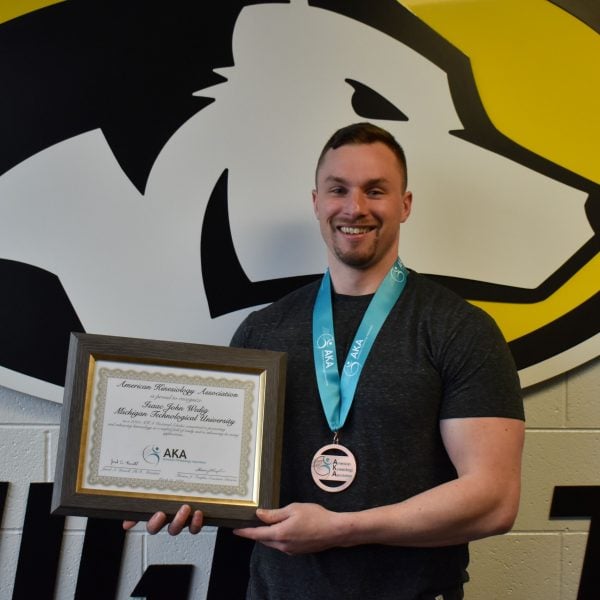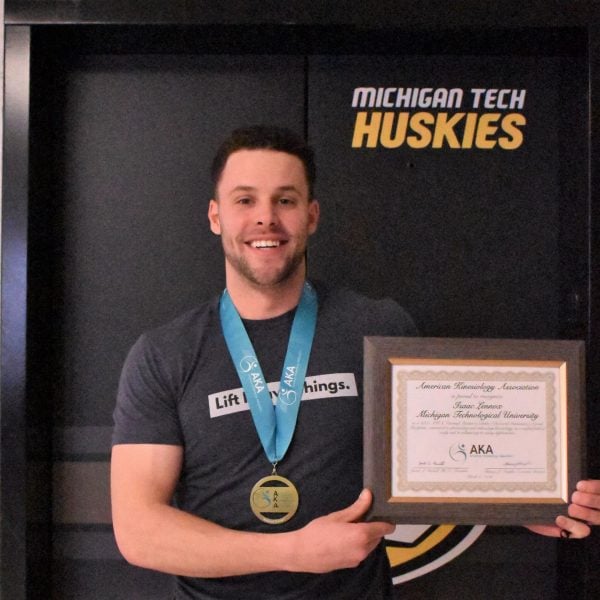Dr. Steve Short graduated from Michigan Tech in 2010 with a dual bachelor’s degree in Exercise Science and Biological Sciences. After going to earn his doctorate in physical therapy, he joined the NBA’s Denver Nuggets as a physical therapist and assistant strength and conditioning coach. He currently services as the Vice President of Sports Medicine for the franchise. Read more about Dr. Short’s career path and his time as a standout MTU quarterback on the Iron Mountain Daily News’ website.
Abbie Laajala, who graduated in 2014 with a bachelor’s degree in Sports and Fitness Management, has been promoted to Associate Athletic Director at Lake Superior State University. She has been working at LSSU since 2016. Read the entire announcement on LSSU’s website for more details about how Abbie made her way through the ranks to her new position.

